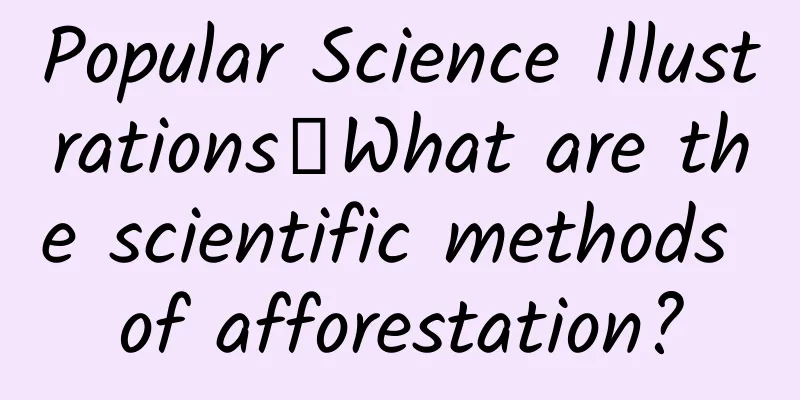What is true intelligence? In 2024, let yourself be a little more "dull"!

|
Think back, in the past year, have you often tossed and turned because of the following small details? Why did he send that smiling emoji when we were chatting? Did I make him unhappy? When shopping, should I buy this or that? Will neither of them suit me? When my colleagues gather together and whisper at work, are they saying bad things about me? Have I offended someone and am being ostracized? … It feels like there are two little men squatting on my shoulders, fighting non-stop, which makes people feel upset. If this is the case for you, don't worry, you are not alone. According to statistics, about 20% of people are highly sensitive to emotions and environmental feelings. This is not necessarily a bad thing. Possessing this trait means that you are observant, responsible, and thoughtful. You are also more able to understand other people's feelings in interpersonal communication, and can appear in the right place at the critical moment to provide comfort to others. However, sensitivity is also a double-edged sword. While you have rich perception, you are also more likely to be invaded by emotions and external factors, and fall into the swamp of self-denial and mental exhaustion . This is especially true when you encounter negative events about yourself, such as interpersonal conflicts, criticism, rejection or failure. Copyright images in the gallery. Reprinting and using them may lead to copyright disputes. A recent study published in Social Psychological and Personality Science on how highly sensitive people are affected by positive and negative events found that highly sensitive people tend to experience more frequent and stronger negative emotions than other people and have lower levels of happiness. This is because those with high sensitivity or high sensory processing sensitivity are more likely to perceive or associate factors that are unfavorable to them, which will lead to a generally low subjective evaluation of the event itself, resulting in a decline in self-esteem, reduced life satisfaction, and even more prone to mental health-related problems. In addition, because they are easily influenced by external factors, their efficiency in obtaining emotional support from positive events will also be reduced. The researchers found that when compared to another person who grew up in the same stressful and similar family environment, a sensitive person was more likely to experience high levels of anxiety and depression. Therefore, sometimes being a little "dull" can make a person happier. Learning to properly cultivate and exercise our insensitivity can help us recover quickly and maintain a positive attitude when faced with choices, doubts, challenges, adversity, pressure and frustration, and adapt to the current environment in a more mental way. Learning to use insensitivity correctly is actually a kind of wisdom and means to win a better life. What is "Insensitivity"? Japanese writer Jun'ichi Watanabe brought the concept of "insensitivity" into the public eye for the first time in his book "Insensitivity". When we talk about insensitivity, we often tend to associate it with negative descriptions. For example, this person is slow to react, not very agile, not very smart, etc. However, Junichi Watanabe mentioned in his book: "Insensitivity is not simply insensitivity, but the wisdom to get rid of all kinds of negative shackles in the world and simply and happily stick to what you want to do." From a psychological perspective, insensitivity can be understood as the ability of humans to reduce their perception or sensitivity when perceiving specific things and situations, so as to face the setbacks in life in a more rational and relaxed state, and to work more firmly towards their desired goals. If you think this explanation is too complicated, then in plain words, it means "be less stubborn and more relaxed." Copyright images in the gallery. Reprinting and using them may lead to copyright disputes. How to have "insensitivity" 1 Rational thinking For highly sensitive people, rational thinking can greatly alleviate the anxiety and uneasiness in their hearts. The most important part of this is to learn to attribute things reasonably . People who are more sensitive generally tend to attribute things inward. For example, when colleagues around us are whispering, we will unconsciously think that they must be saying bad things about us. No matter whether the outcome of an event is good or bad, it is inseparable from ourselves, or even because of ourselves... In the long run, this way of thinking can easily inadvertently add too much psychological pressure and burden to ourselves. Therefore, at this time, you need to change your attribution habits by looking for evidence and evaluating the possibilities. For example, we can write down on paper what this group of colleagues may be discussing, find corresponding evidence, and give each possibility a subjective percentage assessment, thereby reducing the psychological pressure caused by each internal attribution and helping ourselves to build the ability of external attribution and rational thinking. 2 Be more casual and put the spotlight on yourself If you feel that you are a person who is particularly inclined to care about other people's feelings but also feels physically and mentally exhausted by it, then knowing how to shift the spotlight and attention to yourself will be a good way to improve your sentimentality. Pay more attention to your own feelings and experiences, and meet your inner needs appropriately. From time to time, you should learn to reject thoughts such as "What will others think of me? What I do may make them unhappy", and think about "What kind of person do I want to be? If it were me, what would I do myself", so that you will not always be bothered by other people's reactions. In 2024, I hope each of us can be a little duller. References [1]Acevedo BP, Aron EN, Aron A, Sangster MD, Collins N, Brown LL. The highly sensitive brain: an fMRI study of sensory processing sensitivity and response to others' emotions. Brain Behav. 2014;4(4):580-594. doi:10.1002/brb3.242 [2]Van Reyn, C., Koval, P., & Bastian, B. (2023). Sensory Processing Sensitivity and Reactivity to Daily Events. Social Psychological and Personality Science, 14(6), 772-783. https://doi.org/10.1177/19485506221119357 Planning and production This article is a work of Science Popularization China-Starry Sky Project Produced by: Science Popularization Department of China Association for Science and Technology Producer|China Science and Technology Press Co., Ltd., Beijing Zhongke Xinghe Culture Media Co., Ltd. Author: Li Yang, attending physician of psychiatry, Su Yi, deputy director of the National Psychological Service Grassroots Collaboration Network Media Development Center, psychotherapist Reviewer: Fan Chunlei, Associate Researcher, Institute of Psychology, Chinese Academy of Sciences Planning丨Yang Yaping Editor: Yang Yaping |
<<: Supernova warning! Astronomers have discovered a way to predict when stars will "self-destruct"
>>: Don't know what to give for Valentine's Day? 99% of couples give this gift a thumbs up!
Recommend
Is the sound heard in the conch the sound of the ocean?
Take a walk along the beach, pick up a conch carr...
What issues should be paid attention to when developing a fitness app in Beijing?
I believe that after learning about the prosperit...
We found the customer base, but failed in the investment. Why is B2B marketing so difficult?
Under the new marketing concept, low-cost custome...
Why are there no green-haired mammals? Do they just not like them?
Audit expert: Wang Lei PhD in Ecology, Beijing Fo...
Convolutional neural networks cannot process "graph" structured data? This article tells you the answer
This article introduces a paper about the applica...
Zhu Xian audiobook, Zhu Xian audiobook Beiming audiobook Baidu cloud!
Zhu Xian audiobook, Zhu Xian audiobook Beiming au...
Why is physics so powerful in creating new mathematics?
The development of physics in the 20th century be...
How did carambola become the "most unpalatable" fruit in the world?
If some fruits win popularity with their taste, t...
How did “Her Community” win tens of millions of users in four months?
Anti-counterfeiting startups have now become an e...
The beautiful Rudina chicken is actually an expert in egg production
Recently, a blogger shared his daily life of rais...
How to improve the user experience of e-commerce websites?
Almost all e-commerce websites rely on a similar ...
Sony Bluetooth Speaker SRS-HG10 vs. BOSE Soundlink Mini II: Powerful low-frequency speakers are not afraid of the test
Comparing and evaluating speakers is a thankless ...
It started as a small fish fry, but after being released into the wild, it grew into a prehistoric behemoth | How scary is the alligator gar?
This article comes from the China Science Expo fa...
Comprehensively promote international cooperation! Emma's first show at CES, the launch of the new cross-country bike attracted global attention
From January 9th to 12th, the 2024 American Inter...
China's latest news on Mars exploration: Around 2028, Tianwen-3 will visit the fascinating planet Mars
At the Second International Conference on Deep Sp...









